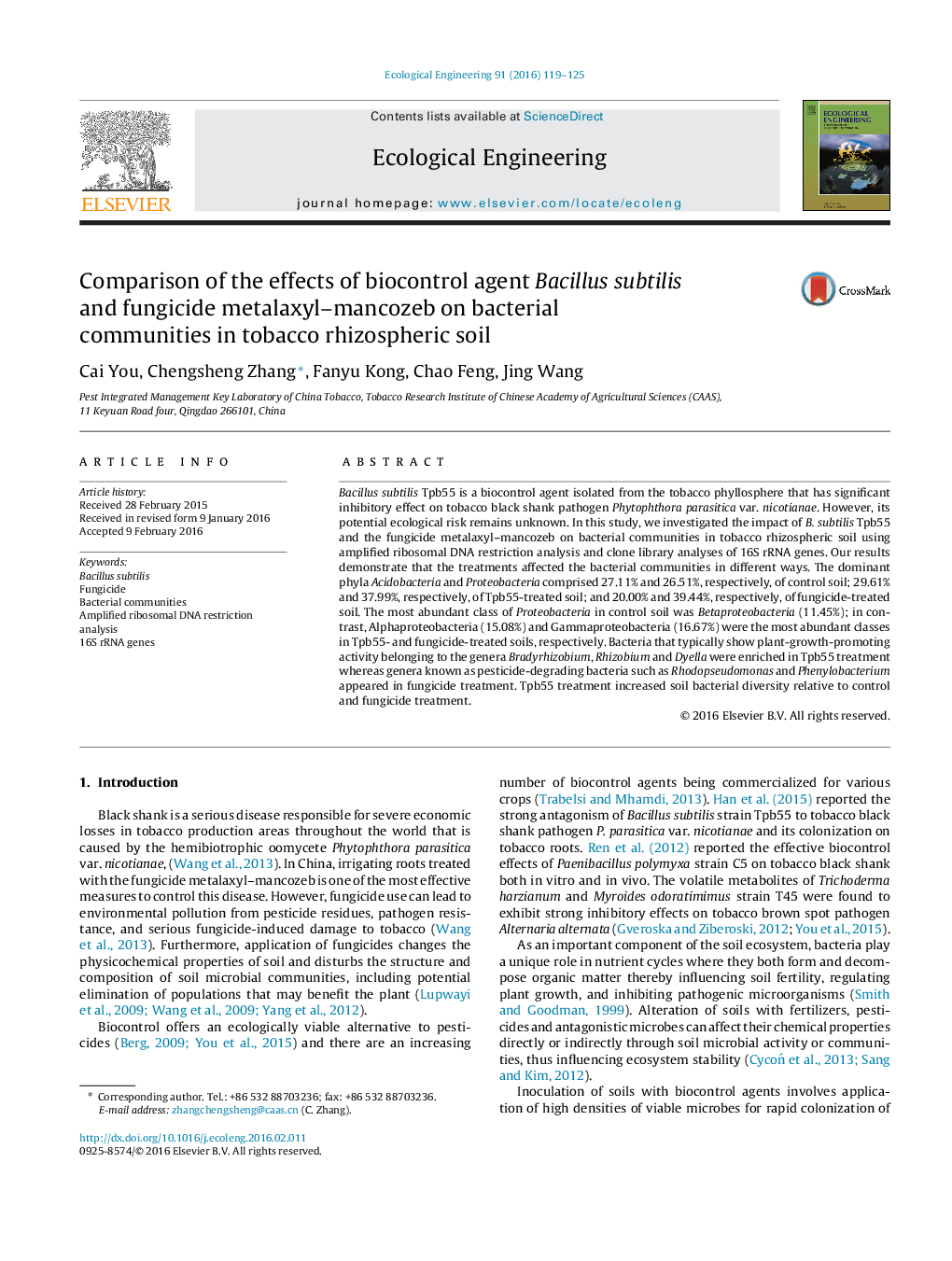| Article ID | Journal | Published Year | Pages | File Type |
|---|---|---|---|---|
| 6301291 | Ecological Engineering | 2016 | 7 Pages |
Abstract
Bacillus subtilis Tpb55 is a biocontrol agent isolated from the tobacco phyllosphere that has significant inhibitory effect on tobacco black shank pathogen Phytophthora parasitica var. nicotianae. However, its potential ecological risk remains unknown. In this study, we investigated the impact of B. subtilis Tpb55 and the fungicide metalaxyl-mancozeb on bacterial communities in tobacco rhizospheric soil using amplified ribosomal DNA restriction analysis and clone library analyses of 16S rRNA genes. Our results demonstrate that the treatments affected the bacterial communities in different ways. The dominant phyla Acidobacteria and Proteobacteria comprised 27.11% and 26.51%, respectively, of control soil; 29.61% and 37.99%, respectively, of Tpb55-treated soil; and 20.00% and 39.44%, respectively, of fungicide-treated soil. The most abundant class of Proteobacteria in control soil was Betaproteobacteria (11.45%); in contrast, Alphaproteobacteria (15.08%) and Gammaproteobacteria (16.67%) were the most abundant classes in Tpb55- and fungicide-treated soils, respectively. Bacteria that typically show plant-growth-promoting activity belonging to the genera Bradyrhizobium, Rhizobium and Dyella were enriched in Tpb55 treatment whereas genera known as pesticide-degrading bacteria such as Rhodopseudomonas and Phenylobacterium appeared in fungicide treatment. Tpb55 treatment increased soil bacterial diversity relative to control and fungicide treatment.
Keywords
Related Topics
Life Sciences
Agricultural and Biological Sciences
Ecology, Evolution, Behavior and Systematics
Authors
Cai You, Chengsheng Zhang, Fanyu Kong, Chao Feng, Jing Wang,
